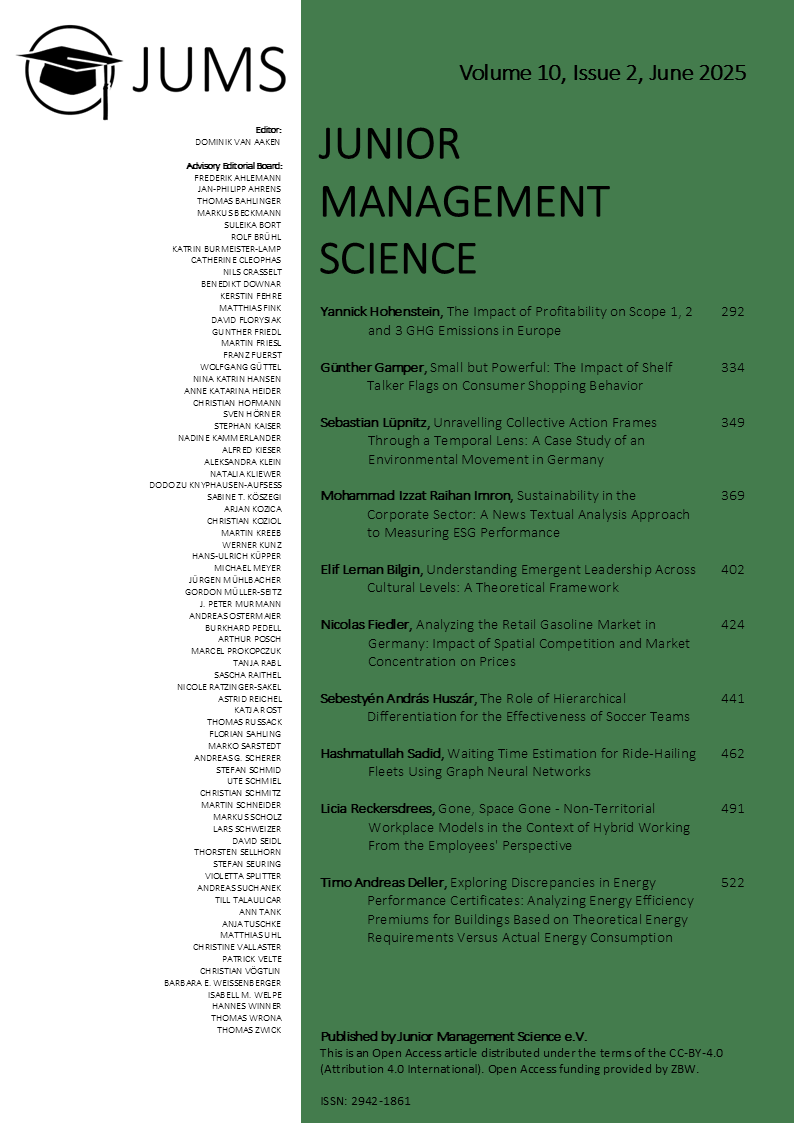Abstract
The building sector is lagging its needed decarbonization pathway. This paper examines EPC policy impacts on building economics in the Rhein-Main Region in Germany. Energy efficiency premiums for rents and sales prices and the effects of the EPC type are investigated using data from 01/2015 - 06/2023 (N = 212 167 rent sample; N = 159 573 sales sample) and hedonic price models. Energy efficiency premiums are present and range up to 7.0%, 4.6% and 6.9% for cold and warm rents and sales prices, respectively, when comparing an A+ to a D rated building. Consumption certificates reflect warm rents better but have a limited sales price impact. Results are rent efficiency premiums of up to 7.1% (A+), no rent discounts for energy inefficiency and a general sales price discount of about 3%. Requirement certificates are viewed as objective, yet less consumption-indicative, especially in the sales market. Rent efficiency premiums of up to 8.8% (A+) and no rent discounts for energy inefficiency are estimated for a building with a requirement certificate. Sales price efficiency premiums of up to 7.4% (A+) and sales price inefficiency discounts of up to -10.2% (H) exist. Overall, current German EPC policy does not address imperfect information, and it is recommended to revise its implementation.
Keywords: energy efficiency; energy performance certificate; EPC; hedonic price model; real estate investments; real estate valuation

This work is licensed under a Creative Commons Attribution 4.0 International License.
Copyright (c) 2025 Timo Andreas Deller

